Texas A&M center addresses impact of conflicts in foreign countries
Research, educational efforts benefit Texas, U.S.
Conflict in foreign countries, especially those nearby, can impact trade and immigration here in the U.S. and particularly in Texas when it comes to our southern border.
The Center on Conflict and Development, part of Texas A&M AgriLife, helps improve understanding and education across that border and others to improve relationships and mitigate potential impacts.
The center, also known as ConDev, works to help reduce conflict and promote development globally, including in Africa, the Middle East and Asia, but many of its efforts are focused closer to home – in Mexico and Central America.
“Through multidisciplinary applied research and educational activities, the center uses science and technology to help reduce conflict and facilitate development in countries affected by conflict,” said Ed Price, Ph.D., center director and Howard G. Buffett Foundation Chair on Conflict and Development, Bryan-College Station. “Conflict and instability in nearby countries such as Mexico, El Salvador and Guatemala have an impact on Texas and the U.S. in such areas as immigration, trade and regional stability.”
Price said anything that can deepen understanding of the conflicts and development challenges of Mexico and Central America will directly benefit Texas and the U.S.
In partnership with the Texas A&M School of Public Health, The Bush School of Government and Public Service and the College of Liberal Arts — and supported by U.S. Agency for International Development, USAID, and the Howard G. Buffett Foundation — the center seeks to create transformative solutions to conflict.
“We also participate in projects to increase the rule of law in the region through creating safe community spaces and youth entrepreneurship programs,” said Shahriar Kibriya, Ph.D., ConDev’s associate director and co-founder of the USAID Higher Education Solutions Network Laboratory at Texas A&M.
Kibriya has led numerous research and development projects relating to agricultural entrepreneurship, food policy, education reform, agricultural practices, and female and youth empowerment.
What does ConDev do?
ConDev programs and research focus largely on mitigating conflict through the four areas: food security, natural resources, youth employment and working with local institutions.
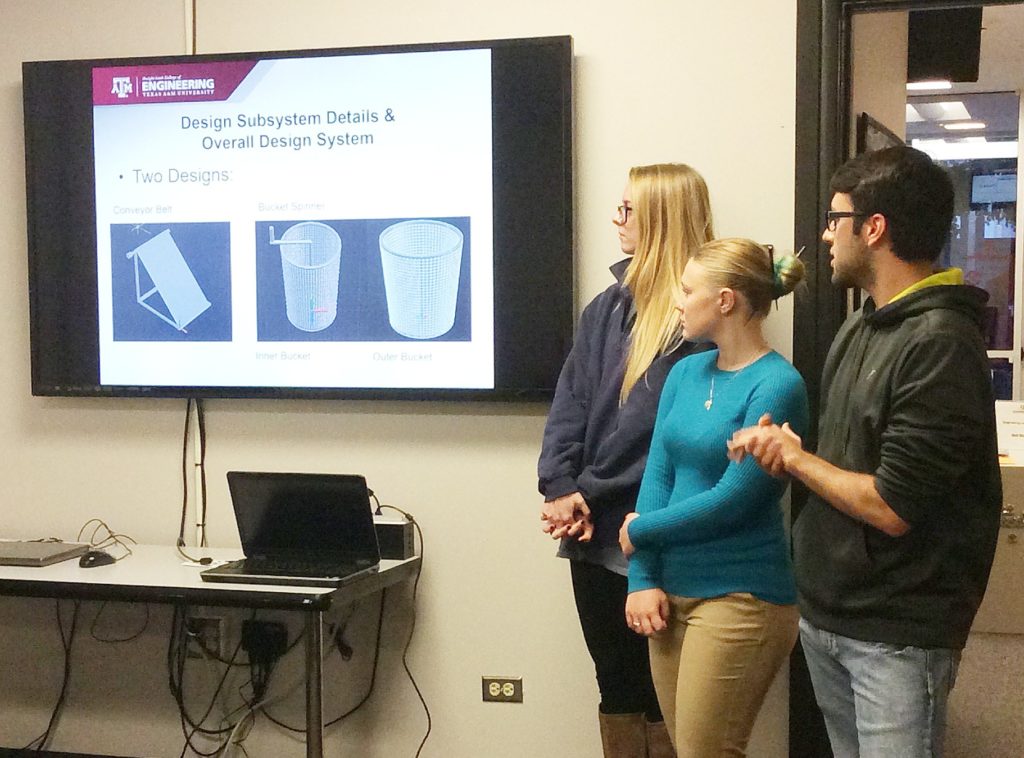
“These target areas were selected after a comprehensive review of potential solutions to conflict and chosen for their potential to combat the key drivers of international conflict,” Price said.
“Another important aspect of ConDev’s research and engagement is that lessons learned are brought to the classroom for others to share,” Price said.
He said this is accomplished through two courses in agricultural economics in Texas A&M’s College of Agriculture and Life Sciences — The Economics of Conflict, Development and Foreign Assistance course and the Food Security, Climate and Conflict course. They are also shared through the Women, International Development and Environmental Conflict course at the Bush School, taught by research scientist and scholar Leslie Ruyle, Ph.D.
Price said ConDev’s efforts are based on the hypothesis that conflict at the interface of human communities is caused by perceived differential benefits from capital in its various forms.
“We believe science and technology can be used to modify perceived benefits at those interfaces to reduce conflict and the damage it causes,” he said.
ConDev efforts in Mexico
The Center on Conflict and Development partnered with USAID/Mexico to conduct an evaluation of their $100 million-plus investment in preventing crime and violence in the Mexican society. An evaluation was done on the effectiveness of the Juntos para la Prevención de la Violencia, JPV,effort.
“We looked at the program’s effectiveness in promoting reductions in crime and violence levels by strengthening local prevention systems and reducing the likelihood of youth participating in crime and violence,” said Kibriya, who oversees the center’s programs in Mexico.
Kibriya also organized and led a team of academics, development practitioners and field researchers to examine local crime and violence dynamics in the northern parts of Mexico.
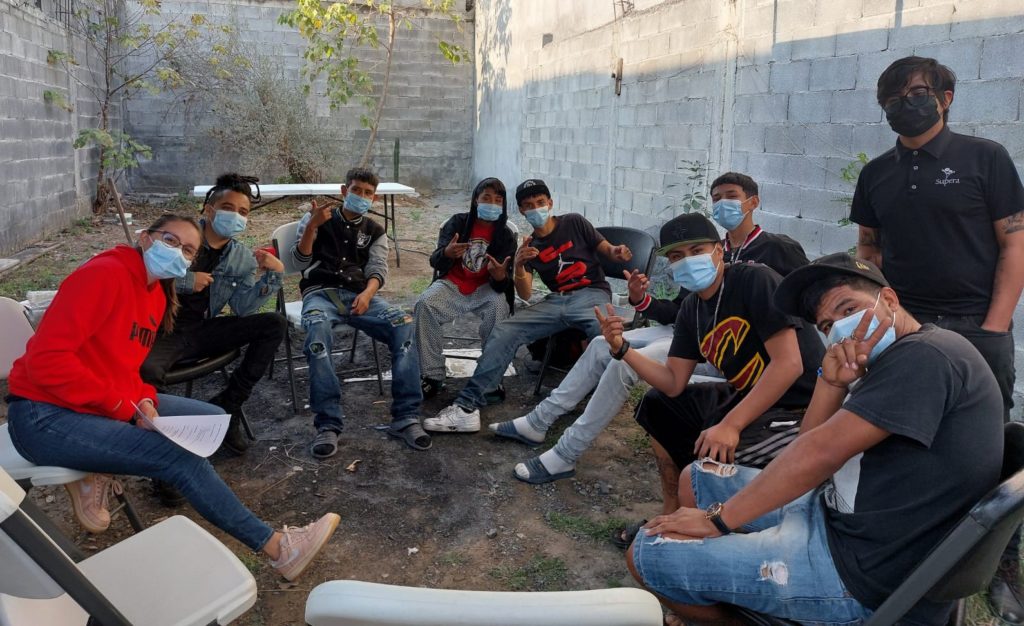
“The team synthesized and amassed quantitative data on Mexican crime and violence over 10 years in nine Mexican states,” he said. “It also collected 12 rounds of interviews from prime informants to understand the main drivers, stressors and mediators of violence.”
The team also conducted a face-to-face survey representative of youth in urban Mexico, getting input from 2,880 individuals aged 16 to 29 in approximately 102 urban municipalities. In addition, they conducted focus groups from all U.S. and Mexican contractors involved in the flagship JPV program
“Reports from these explorations are not only strengthening scholarship but also generating policy suggestions that are vitally important to the U.S.’s national interest.
Other efforts in Mexico include:
— Leading the design and evaluation of the Mexico Focused Deterrence Activity effort supported by USAID and Mexican government to reduce crime and violence in selected municipalities in Nuevo Leon and Chihuahua. Focused crime deterrence is meant to deter youth from joining criminal gangs through a set of community activities.
— Providing recommendations to enhance the design, implementation, and sustainability of future crime and violence prevention programs.
ConDev efforts in Central America
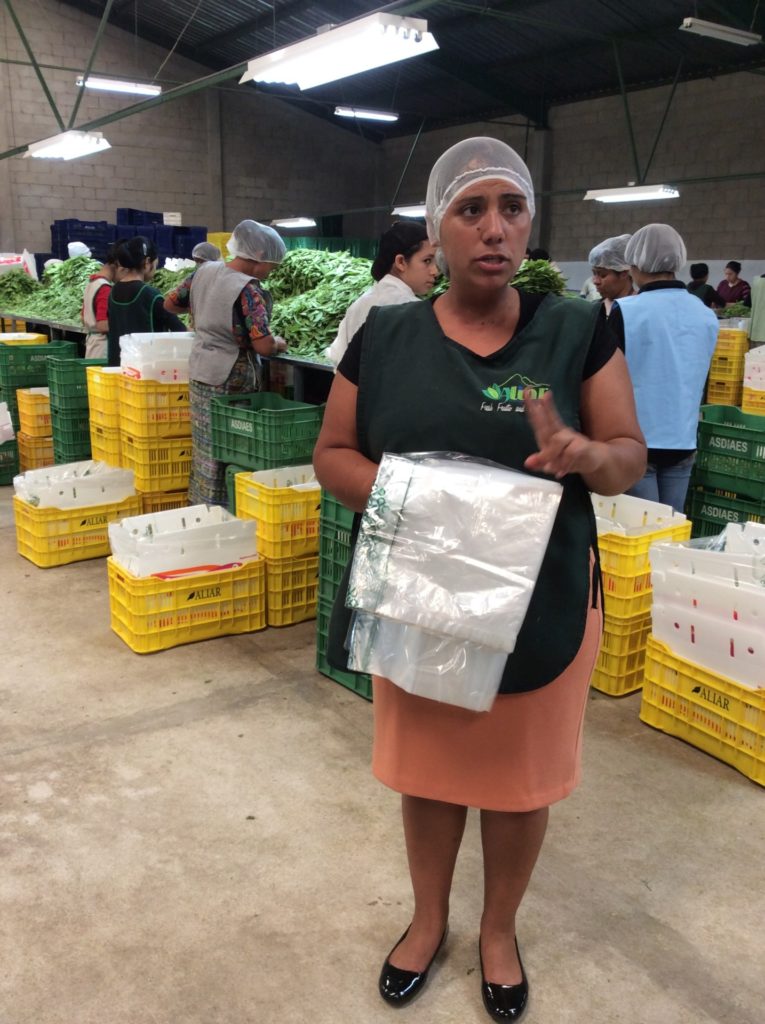
“In addition to the programs being conducted in Mexico, ConDev and the Conflict and Development Foundation are partnering with several organizations in Central America to implement projects to combat violence and promote peace through food security, local organizations and youth engagement,” said Johanna Roman, center program manager and regional lead for Latin America.
Roman said the center has funded several focused research studies and programs to better understand the interrelations between poverty, violence and migration.
“We have also introduced youth programs to promote education about peace and to help prevent bullying behaviors in schools and keep youth out of gangs,” she said.
She also noted ConDev-funded studies and activities in Central America have worked toward improving the role of women and reducing the likelihood of violence committed against them.
“In addition, we have funded several student-led photojournalism programs focusing on conflict issues in countries like Colombia, Nicaragua, Peru, Brazil and Guatemala through our Student Media Grant Program,” Roman said.
ConDev projects in Guatemala include:
— Partnering with Texas A&M AgriLife Extension Service’s Junior Master Gardener program and the A&M Garden Club, the Learn, Grow, Eat & Go! gardening and nutrition program is being used to promote food security and reduce violent behaviors in schools through encouraging teamwork and inclusion.
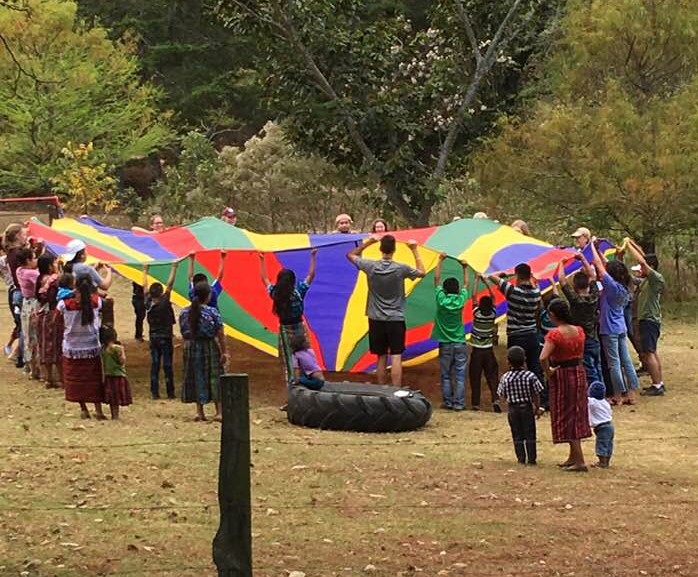
— Helping enhance the livelihoods and incomes of rural women in Guatemala with the testing of an innovation in agricultural technology. Mayan women at selected fruit and vegetable packing centers used modified atmosphere packaging, MAP, for the commercial-quality processing of pre-washed fruits and vegetables.
— Collaborating with Semilla Nueva, a non-profit organization that works to develop new and sustainable agricultural technologies, including the introduction and promotion of quality protein maize. With CDF and Semilla Nueva, ConDev studied the effect of improved family nutrition on violent behavior, stress and anxiety within rural farming families in Guatemala.
— Using the Play for Peace methodology to conduct peace education programs for youth in Guatemalan coffee-growing villages. Through collaborative play, Mayan children learn how to cope with stress due to insecure and unfamiliar environments, poverty and discrimination.
“More than 60 Texas A&M students have had an opportunity to lead Play for Peace activities for kids in rural schools and villages in Guatemala,” Roman said. “The students learned program methodologies and then led collaborative games with Mayan kids, helping them learn about teamwork, inclusion and peace. Practice Peace Sessions led by a local expert included dialogues about avoiding gang activities in their communities and how kids and youth can become architects and leaders of sustained peace.”
ConDev projects in El Salvador include:
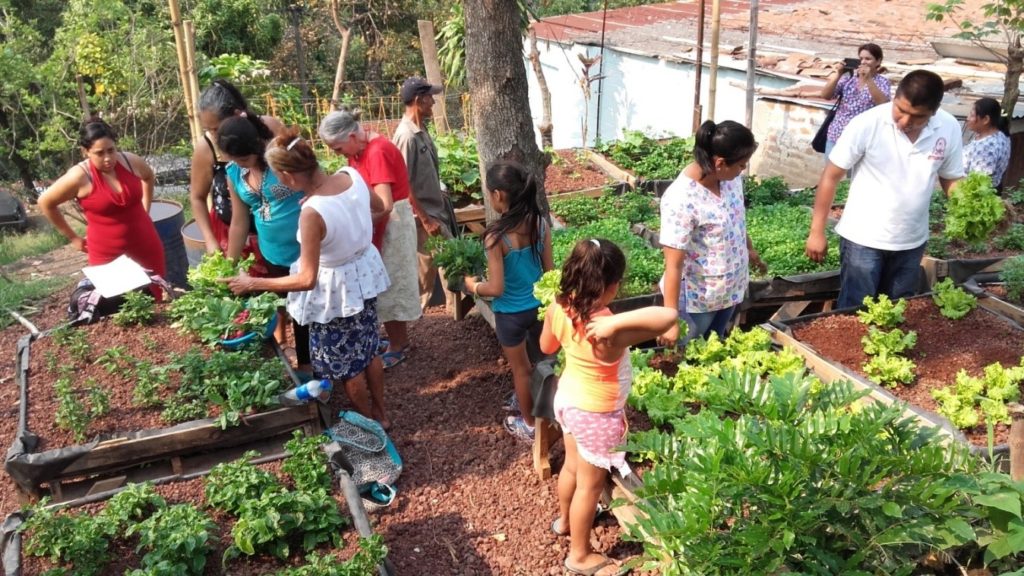
— Supporting the Olympic Values study in El Salvador to research and evaluate the effects of the Olympic Values through Sports Program on participating youth from 12 municipalities and to determine the program’s contribution to reducing gang involvement.
— Partnering with Food for the Poor in El Salvador to help reduce youth violence and gang involvement in several communities by getting urban youth involved in hydroponic gardening, leadership workshops, social inclusion events and nutrition interventions.
Higher Education Solutions Network
ConDev efforts in Mexico and Central America also benefit from the collaboration with the Higher Education Solutions Network, HESN, of USAID, which helps facilitate research and innovation in development.
“HESN helps connect the knowledge and expertise of world-class universities with the needs of international development,” Kibriya said.
The HESN, initiated in 2012, supports development laboratories in seven U.S. universities. The network now has more than 650 partner academic, civil and governmental collaborators in more than 65 countries.
“The network engages students, teachers, researchers, faculty and others in collaborating on novel approaches to some of the world’s most profound development challenges through scientific and technological innovation,” Kibriya said. “In partnership with local institutions, they research, evaluate, incubate and field test what they hope are effective, efficient and sustainable development solutions and determine how these can be employed to deliver the greatest impact.”



